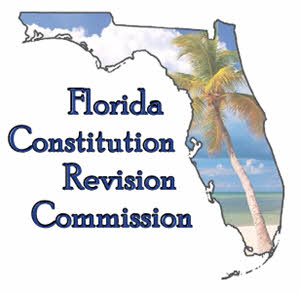First Amdt Foundation: Grave Concerns About FL Constitution Privacy Proposal
Posted November 1, 2017 01:30 am | Op-Ed
To: The Honorable Lisa Carlton, Chair, Declaration of Rights Committee Constitutional Revision Commission
Re: CRC Privacy Proposal 22
Dear Commissioner Carlton:
 We
are writing to express our grave concerns regarding CRC
Proposal 22, Declaration of Rights, Right of Privacy,
which would amend the constitutional right of privacy
found in Article I, s. 23, Fla. Con., to limit privacy
rights to "privacy of information and the disclosure
thereof."
We
are writing to express our grave concerns regarding CRC
Proposal 22, Declaration of Rights, Right of Privacy,
which would amend the constitutional right of privacy
found in Article I, s. 23, Fla. Con., to limit privacy
rights to "privacy of information and the disclosure
thereof."
While we are certainly concerned about the broader implications of such a severe constraint on privacy rights for all Floridians, the First Amendment Foundation is most alarmed by the dramatic impact this proposal would have on the constitutional right of access to public records.
The last line of the privacy provision states that the right of privacy "shall not be construed to limit the public's right of access to public records and meetings as provided by law." (emphasis added)
This language currently allows the Legislature to create exemptions from public disclosure requirements. If CRC Proposal 22 is adopted, legislative powers would be broadly expanded, and the Legislature could "provide by law" that certain "private" information is not public record. This would give the Legislature the power to selectively pull existing public records from the public domain.
Equally troubling is the potential for the courts to hold that certain information is "private" pursuant to the revised privacy right and thus not subject to disclosure under Florida's public records law.
Under the current constitutional and statutory scheme, only the Legislature can create exemptions to the right of access guaranteed under Article 1, s. 24, Fla. Con. And although the FAF doesn't always agree with some of the proposed public record exemptions, we believe the Legislature has done a very good job in protecting sensitive and personal information. Currently, there are scores of exemptions protecting medical information, social security numbers, personal financial information, and even home addresses when warranted.
Given the large number of such exemptions and the authority of the Legislature to create new exemptions to protect sensitive personal information, the exact purpose of Proposal 22 isn't clear - other than to allow sweeping revisions of existing disclosure laws.
If the proposed amendment passed, would public officials no longer be required to disclose personal financial information? Would text messages sent by a city manager on his personal cell phone to a lobbyist asking for expensive football tickets be considered "private" and thus not subject to disclosure under the public records law? Would applications for public employment or criminal history records fall under the privacy provision? Would lobbyists no longer have to disclose the identity of clients and gross compensation?
Given the alarming ambiguity of the phrase "privacy of information," as well as the Legislature's existing constitutional authority to create exemptions to protect sensitive personal information, we strongly encourage your committee to vote no on this unneeded change to the strong privacy provision in Florida's Constitution.
Sincerely,
---------
Barbara Peterson is President of the First Amendment Foundation.
Graphic added by the Observer

 By
Barbara Peterson
By
Barbara Peterson